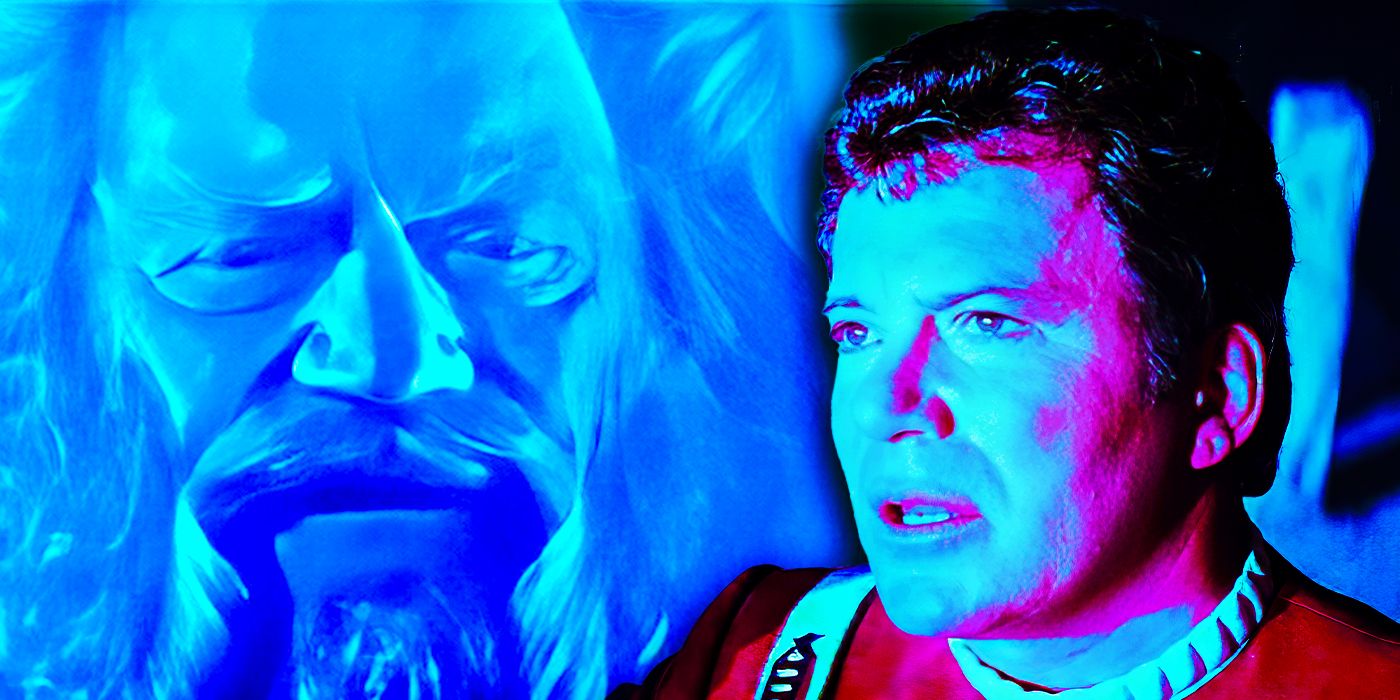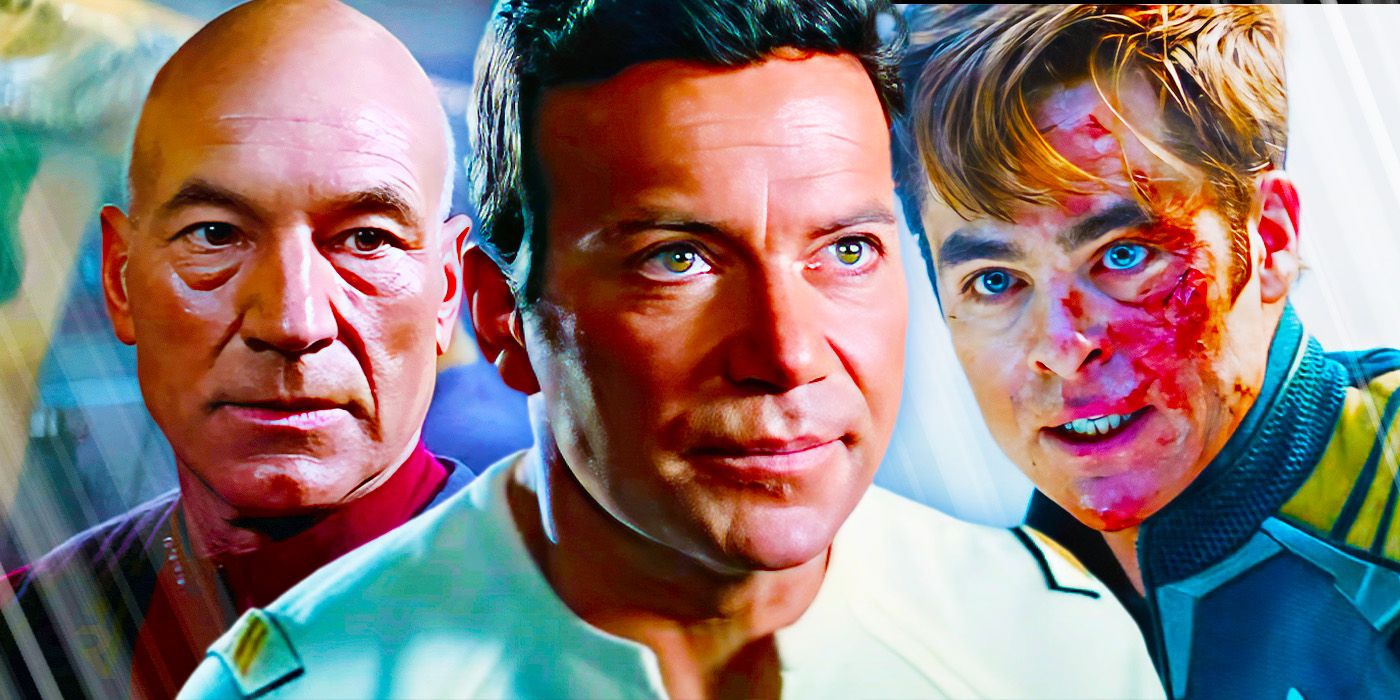Star Trek producer Harve Bennett points out the fundamental problem with Star Trek V: The Final Frontier, the lone movie directed by William Shatner.

Summary
- Star Trek V: The Final Frontier was the weakest and least successful of the Star Trek movies, primarily because it was based on a flawed premise of finding God.
- Director William Shatner insisted on this premise despite objections, resulting in a film that was doomed from the start.
- The film faced additional challenges, such as budget constraints, lackluster special effects, and competition from other blockbuster movies in 1989.
Harve Bennett, who produced most of the Star Trek: The Original Series films, identified the biggest problem with Star Trek V: The Final Frontier, the lone film directed by William Shatner. Released in the summer of 1989, Star Trek V was, infamously, “the one where the Starship Enterprise met God.” After the blockbuster success of Star Trek IV: The Voyage Home directed by Leonard Nimoy, which stood for 23 years as the highest-grossing Star Trek movie, William Shatner’s Star Trek V: The Final Frontier was a downturn critically and at the box office that nearly sank the Star Trek movie franchise.
Star Trek Explorer issue #9 includes an interview conducted with the late producer Harve Bennett in 1993. Bennett honestly appraises the failures of Star Trek V: The Final Frontier, and pinpoints the issue that stemmed from the film’s very inception: directorn William Shatner having story approval and the tale of the Starship Enterprise crew meeting God he insisted Star Trek V had to be about. Read his quote below:
I would say that Star Trek V was the weakest of the pictures, both in terms of coherency and its box office, and I would say without shirking responsibility is that the problem was Bill had story approval. He knows this, so I’m not ratting on my friend, but basically, we got to a point where I said, “Bill, we cannot make a movie about finding God!” I said that from the beginning… “I know that if you say in a TV log line “Tonight on Star Trek, the crew of the USS Enterprise goes to find God,” everybody knows we’re not going to get there, so as a storyteller, it gets to be a shaggy joke!
But he wanted to do it, so after much aggravation, I said, “All right, we’re going to go find God, but we’re going to make it the best trip we possibly can!”, and so that’s what we did. I think we achieved a good trip, but it was not a strong Star Trek. It was doomed by its premise. I learned long ago, if it ain’t in the premise, it ain’t there, but Bill felt if we worked hard enough and dazzled them with enough stuff, we could do it, and I don’t think we pulled that off… I think a faulty premise results in a flawed picture.

Every Star Trek Movie In Chronological Order
With 13 entries in the Star Trek movie series from 1979-2006, there are a couple of ways to watch the films chronologically.
The many problems of Star Trek V: The Final Frontier
William Shatner’s Star Trek movie faced a lot of challenges.
Harve Bennett is correct that the faulty premise of “meeting God” doomed Star Trek V: The Final Frontier from the start, but director William Shatner faced multiple other problems trying to get his movie made. Paramount Pictures didn’t allocate enough of a budget for Shatner to realize his lofty ambitions for Star Trek V‘s visuals, such as choruses of angels and demons, and the film’s ending suffered the most from lack of funds. Industrial Light and Magic also couldn’t provide SFX, and Shatner went with an outside effects house that didn’t deliver the highest quality visuals. Star Trek V was also released in the incredibly crowded summer of 1989 and was lost in the shuffle against mega-blockbusters like Batman, Indiana Jones and the Last Crusade, and Lethal Weapon 2.
Harve Bennett also pointed out the 1988 writers’ strike meant new episodes of Star Trek: The Next Generation season 2 were still airing in syndication in the summer of 1989, and Star Trek V had to compete with a Star Trek TV show.
Star Trek V hasn’t shirked its reputation as one of the worst Star Trek movies, but the film does have virtues. Lawrence Luckinbill’s charismatic turn as the villainous Sybok, the Vulcan half-brother of Spock (Leonard Nimoy), holds up well, and Sybok has even made a comeback in the prequel series Star Trek: Strange New Worlds. Shatner’s film gives ample focus to the trio of Captain James T. Kirk, Spock, and Dr. Leonard McCoy (DeForest Kelley), and their campfire scenes remain charming. Star Trek V: The Final Frontier may have been doomed from the get-go, but it was a failure made with the best of intentions.





